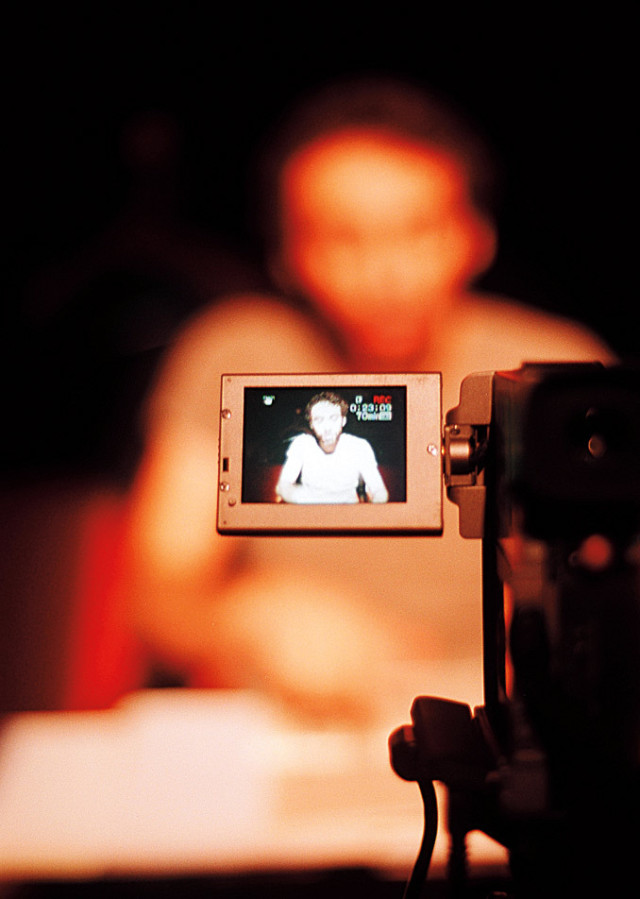U.S. Debut for Lebanese Performance Artist Rabih Mroué

A TEXT, A TWEET, A CELLPHONE photo: these were the weapons of the Arab Spring, wielded by young, tech-savvy revolutionaries who issued a call to action—a call for freedom—with Silicon Valley technology. As rebellion simmered on Facebook and spilled into the streets of Egypt, Tunisia, and Syria, Rabih Mroué took notice from his home in Beirut. The 44-year-old performance artist has long had an eye for political theater; ever since his native Lebanon ended its own 15-year civil war in 1990, Mroué has played the provocateur, using monologues and video installations to probe his country’s troubled history. The 2005 performance piece Who’s Afraid of Representation, based on the true story of a civil servant who went on a killing spree after losing his job, earned Mroué a phone call from the office of the interior ministry. They demanded a rewrite.
“To use the words of the censorship department, they tell us: We don’t censor you, we just play with the contrast, we make it less sharp, just make it more gentle, not so violent or provocative,” he told CNN last year. In turn, Mroué has worked alongside his fellow avant-guardians on the fringes of Beirut’s theater scene. His performances are more pop-up than popular, but they’ve earned him international respect, including a 2010 Spalding Gray award issued by a U.S. consortium of museums and theaters. Quite the honor for a man who’s never performed stateside before—until now.
Mroué makes his U.S. debut this month with stops in Pittsburgh, Minneapolis, New York City, and Seattle, at On the Boards, where he’ll give audiences a glimpse of his latest work in progress, The Pixelated Revolution, a monologue about the role of mobile-phone photography in the Syrian revolution. He’ll also showcase 2003’s Looking for a Missing Employee, a series of videos investigating the disappearance of a low-level member of the Ministry of Finance in Beirut. As the show’s “detective,” Mroué lets the story unfold through found objects—newspaper clippings and government documents—while an illustrator draws his own cartoon rendering of the case. In one image, the employee is faceless, a Facebook profile without a photo. Even in Lebanon, which got a head start on free speech in the Middle East, the truth isn’t always transparent.




